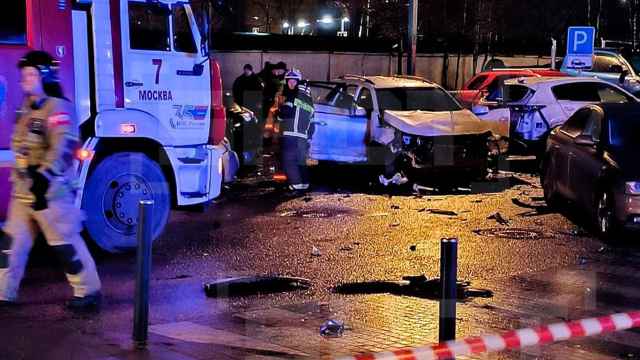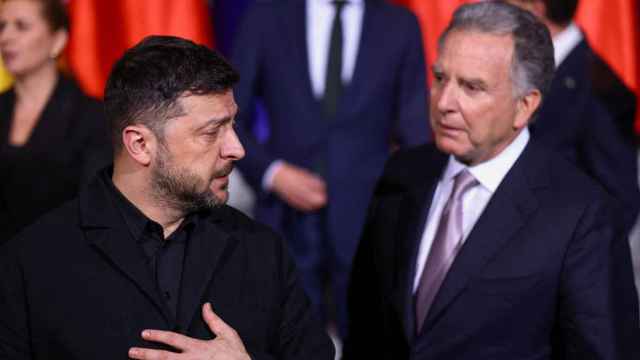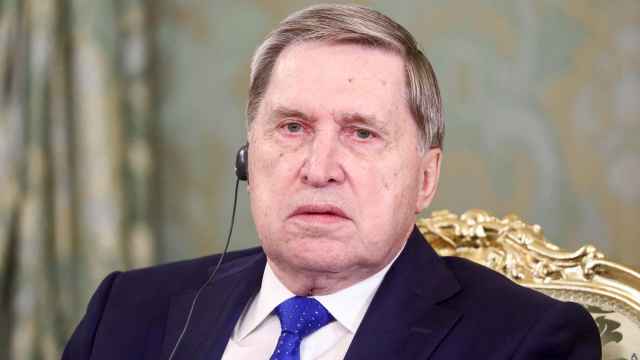KHARKIV, Ukraine — A bid by regional leaders loyal to President Viktor Yanukovych to challenge the legitimacy of the national parliament appeared to founder on Saturday, after thousands of protesters rallied in eastern Ukraine in support of the political changes in Kiev.
The meeting of governors of mainly Russian-speaking regions in the northeastern city of Kharkiv had raised the possibility of a split in the vast former Soviet republic of 46 million. The leaders denied that this was their intention.
In Kiev, the parliament has passed a series of measures that would reduce the president's powers and pave the way to the formation of a national unity government and early presidential elections.
Mikhaylo Dobkin, Governor of the Kharkiv region in northeast Ukraine, told regional leaders meeting in the city: "We are not preparing to break up the country. We want to preserve it."
But a resolution adopted at the meeting questioned the legality of the parliament's measures and assumed responsibility for safeguarding regional law and order because central powers were "paralyzed."
These sentiments were not echoed by many of Kharkiv's residents however.
About 3,000 protesters gathered in the city center on Saturday, proclaiming their support for the new status quo.
The regional leaders' pledge to assert control over the protest movement was put to the test later in the day, when several demonstrators entered Kharkiv's administration offices.
A picture posted on the official Facebook page of supporters of the Kiev "Maidan" protests showed a group of protesters seated casually around a large conference table in the building, one of them sporting a Ukrainian flag as a cape.
In another sign Yanukovych's regional supporters were not calling the shots, the president's arch-nemesis Yulia Tymoshenko walked free from the Kharkiv hospital where she had been held under prison guard for most of the time since she was convicted in 2011 on charges of abuse of office while prime minister.
Talk of a Split
Many politicians have warned of a looming partition in Ukraine, which broke peacefully from the Soviet Union in 1991, since people took to the streets late last year to protest against Yanukovych for spurning political and trade deals with the European Union. Western Ukraine is broadly pro-EU.
Some Ukrainians are also worried by calls in Crimea for the region to again become Russian territory, nearly six decades after Kremlin leader Nikita Khrushchev, a Ukrainian, redrew internal Soviet boundaries to make a gift of the peninsula to Ukraine.
"The revolution has been won in Kiev, in part of Ukraine, but not in the whole of Ukraine. We still have many risks," said Volodymyr Fesenko, a political analyst at the Kiev-based Penta think-tank.
However imminent pro-Yanukovych upheaval appears unlikely.
Following the leaders meeting in Kharkiv, two of its main participants Governor Dobkin and the city's Mayor Gennady Kernes quietly slipped over the border into Russia.
"Mr. Dobkin and Kernes have left Ukrainian territory," a parliamentary spokesman said, local media reported.
A Message from The Moscow Times:
Dear readers,
We are facing unprecedented challenges. Russia's Prosecutor General's Office has designated The Moscow Times as an "undesirable" organization, criminalizing our work and putting our staff at risk of prosecution. This follows our earlier unjust labeling as a "foreign agent."
These actions are direct attempts to silence independent journalism in Russia. The authorities claim our work "discredits the decisions of the Russian leadership." We see things differently: we strive to provide accurate, unbiased reporting on Russia.
We, the journalists of The Moscow Times, refuse to be silenced. But to continue our work, we need your help.
Your support, no matter how small, makes a world of difference. If you can, please support us monthly starting from just $2. It's quick to set up, and every contribution makes a significant impact.
By supporting The Moscow Times, you're defending open, independent journalism in the face of repression. Thank you for standing with us.
Remind me later.





